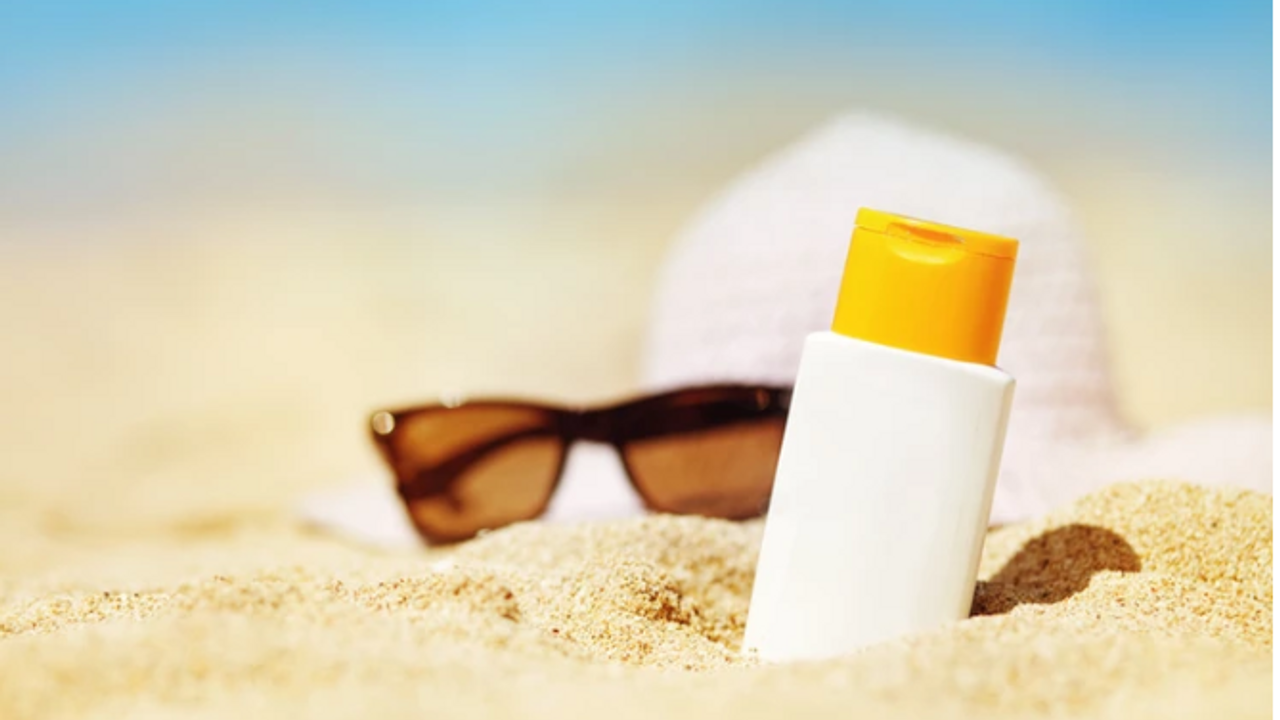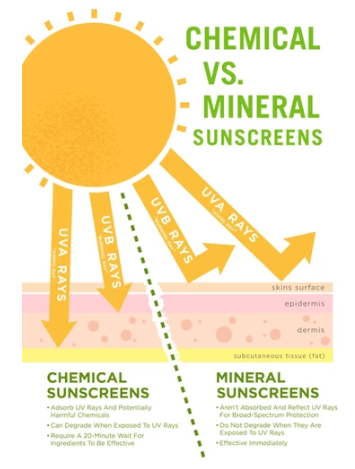Caring for Your Skin After 40
Jun 21, 2020
As I get older, I'm always looking for ways to keep my skin healthy, and looking fresh and radiant. I love being outside. I love running, walking my dogs, sitting by the pool, plus I train most of my fitness clients outside in the Texas heat, so I’m outside a lot and finding a good sunscreen is super important to me.
Soaking up the sun and getting a little sunshine is good for all of us, and since it’s summertime I bet you’re getting a little extra sunshine yourself lately. There are so many great benefits from basking in the sun, including:
-
Vitamin D from direct sunlight (great for our bone health - reducing our risk of osteoporosis and osteomalacia)
-
Sunlight cues special areas in the retina, which triggers the release of serotonin (your happy hormone)
-
Although excess sunlight can contribute to skin cancers, a moderate amount of sunlight actually has preventive benefits when it comes to other types of cancer (colon cancer, Hodgkin’s lymphoma, ovarian cancer, pancreatic cancer, prostate cancer)
-
Sun exposure can help treat several skin conditions (psoriasis, eczema, jaundice, acne)
-
sunlight as a potential treatment for several other conditions including: rheumatoid arthritis (RA), inflammatory bowel disease, thyroiditis
But with anything else, there is such a thing as too much of a good thing! Too much sun exposure can be a serious problem, especially for us women over 40. That sun can be rough on our skin, triggering premature aging, wrinkles, sun spots, and more serious, skin cancer. In fact, skin cancer is now the most common type of cancer worldwide, with skin cancer being one out of every three cancer diagnoses.
Finding the right sunscreen is very important for anyone, but especially for women experiencing peri/menopause symptoms. It’s important to understand that not every sunscreen is the same and that different skin types and lifestyles may need different types of protection.

The most important thing to know about SPF is that there are two main types of formulas. There are mineral sunscreens and there are chemical sunscreens. While both help to protect you from the sun’s harmful UV rays, they do so very differently.
There are over 30 different types of chemical sunscreen ingredients, meaning this type of SPF allows for more variety in textures and applications. Chemical sunscreens are designed to be absorbed by the top layers of skin as they work in two different ways to help neutralize harmful UV radiation. On one level, it deflects and scatters the sun’s harmful rays before they damage the skin, while on the other they filter the UVA/UVB and convert them into heat, neutralizing them.
Unfortunately, chemical sunscreens are associated with hormone disruption, meaning they can act like estrogen in your body, which is not always what a woman already experiencing fluctuating hormones wants to hear.
An alternative to chemical sunscreens is mineral sunscreen, which contains natural compounds like zinc oxide and titanium oxide. While chemical sunscreens act to absorb harmful UV rays and prevent them from causing skin damage, mineral sunscreens scatter UV rays. This prevents some of the UV rays from getting into your skin at all. They leave you looking a little like you’re covered in white paint because they are a physical barrier. But they do work well without exposing your body to chemicals like PABA, cinnamates, or oxybenzone.
I would recommend getting educated! Do a little research about your favorite brands, read the labels, and talk to your doctor, dermatologist, or esthetician for their recommendations.
We know that there are plenty of benefits to spending time outdoors, and that it’s important to find a healthy balance between sun exposure and sun protection, but did you know that you can also help boost your skin’s health with your diet?
Enjoying a diet full of antioxidant-rich foods can help keep your skin looking and feeling fabulous all year long! Just a few simple changes in your diet can help you improve the health of your skin.
Not only can certain foods act as a natural sunscreen, they can help your body protect itself from skin damage.
Eating foods high in antioxidants does more than lower your risk for things like heart disease and diabete, they help protect your skin from sun damage, and they reduce inflammation of your skin cells.
Here are a few foods you can add to your plate to help keep that skin healthy and radiant:
-
Walnuts and seeds are great sources of vitamins that help keep skin clear and smooth. They both help reduce skin inflammation from acne and general redness. Just eating an ounce a day can make a difference in how skin looks and feels!
-
Grapes and Grape Seed
-
Pomegranate
-
Mushrooms
-
Garlic and Onions
-
Green Tea
-
Soy Beans
-
Dark Green Leafy Vegetable
-
Ginger
-
Turmeric
-
Citrus fruits / berries / cherries
Just a few tips and tricks to help you make this summer the best, safest, and healthiest summer yet!!
I’d love to hear from you - how much time do YOU spend soaking up the sun?
Summer time is a great time to make that dermatologist appointment for your skin health check up. While you are there ask them about sun protection recommendations and make sure to mention any hormone treatments or supplements you are using just to be safe.
What is your favorite go-to sunscreen? Do you have a favorite natural sunscreen or other ways to protect your skin from sun damage? Share them in the comments below!!
Stay connected with news and updates!
Join our mailing list to receive the latest news and updates from our team.
Don't worry, your information will not be shared.
We hate SPAM. We will never sell your information, for any reason.


